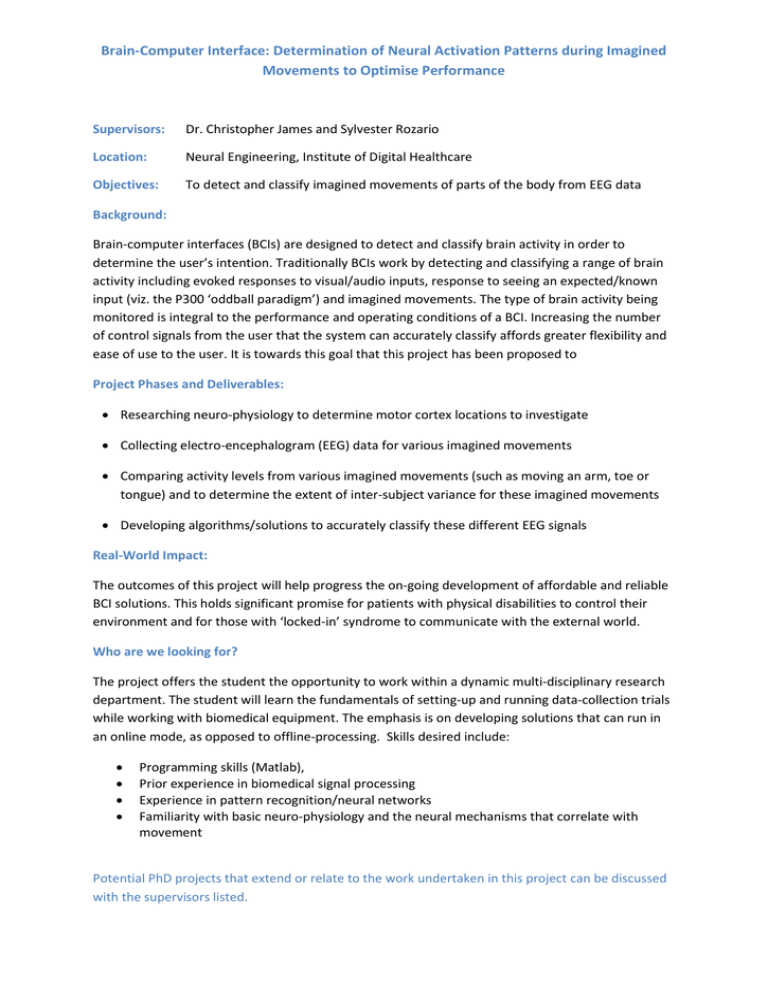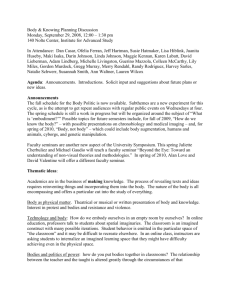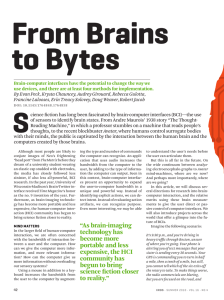Brain-Computer Interface: Determination of Neural Activation Patterns during Imagined
advertisement

Brain-Computer Interface: Determination of Neural Activation Patterns during Imagined Movements to Optimise Performance Supervisors: Dr. Christopher James and Sylvester Rozario Location: Neural Engineering, Institute of Digital Healthcare Objectives: To detect and classify imagined movements of parts of the body from EEG data Background: Brain-computer interfaces (BCIs) are designed to detect and classify brain activity in order to determine the user’s intention. Traditionally BCIs work by detecting and classifying a range of brain activity including evoked responses to visual/audio inputs, response to seeing an expected/known input (viz. the P300 ‘oddball paradigm’) and imagined movements. The type of brain activity being monitored is integral to the performance and operating conditions of a BCI. Increasing the number of control signals from the user that the system can accurately classify affords greater flexibility and ease of use to the user. It is towards this goal that this project has been proposed to Project Phases and Deliverables: Researching neuro-physiology to determine motor cortex locations to investigate Collecting electro-encephalogram (EEG) data for various imagined movements Comparing activity levels from various imagined movements (such as moving an arm, toe or tongue) and to determine the extent of inter-subject variance for these imagined movements Developing algorithms/solutions to accurately classify these different EEG signals Real-World Impact: The outcomes of this project will help progress the on-going development of affordable and reliable BCI solutions. This holds significant promise for patients with physical disabilities to control their environment and for those with ‘locked-in’ syndrome to communicate with the external world. Who are we looking for? The project offers the student the opportunity to work within a dynamic multi-disciplinary research department. The student will learn the fundamentals of setting-up and running data-collection trials while working with biomedical equipment. The emphasis is on developing solutions that can run in an online mode, as opposed to offline-processing. Skills desired include: Programming skills (Matlab), Prior experience in biomedical signal processing Experience in pattern recognition/neural networks Familiarity with basic neuro-physiology and the neural mechanisms that correlate with movement Potential PhD projects that extend or relate to the work undertaken in this project can be discussed with the supervisors listed.






